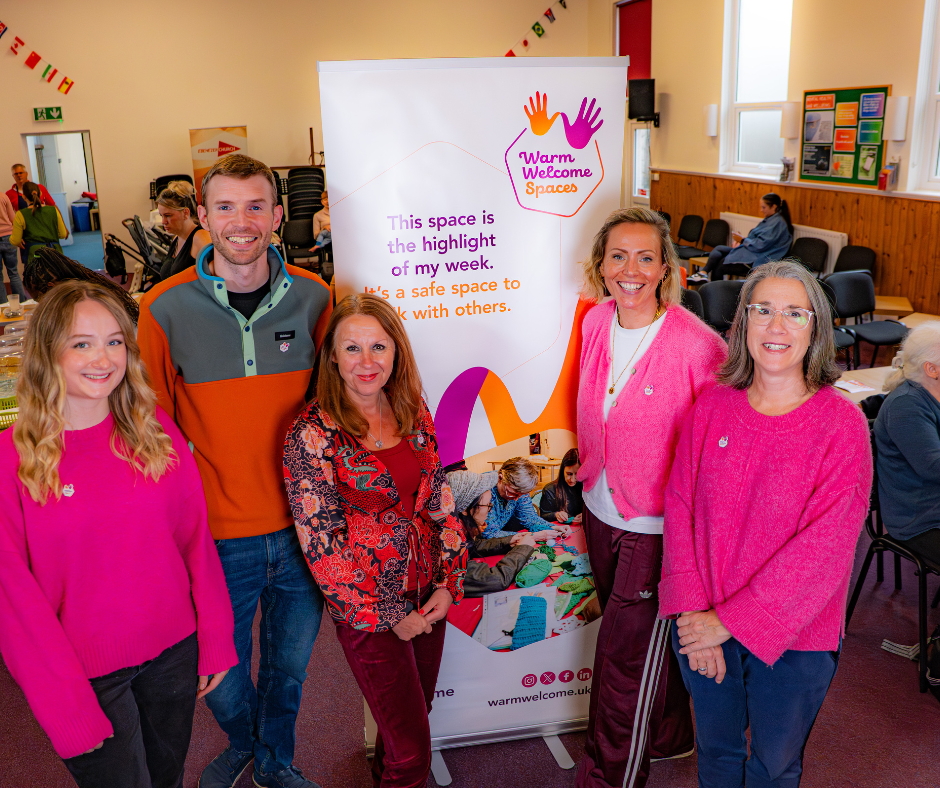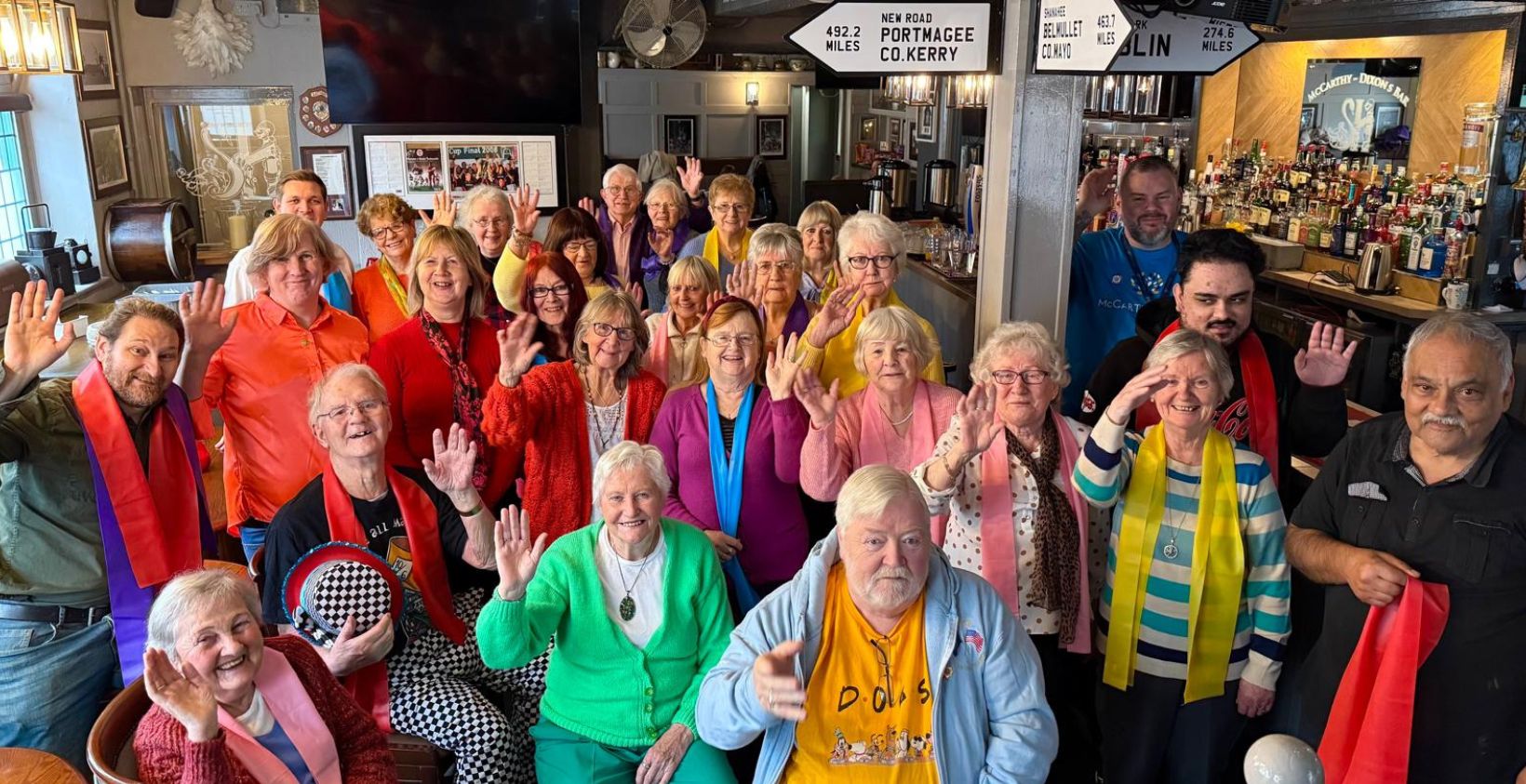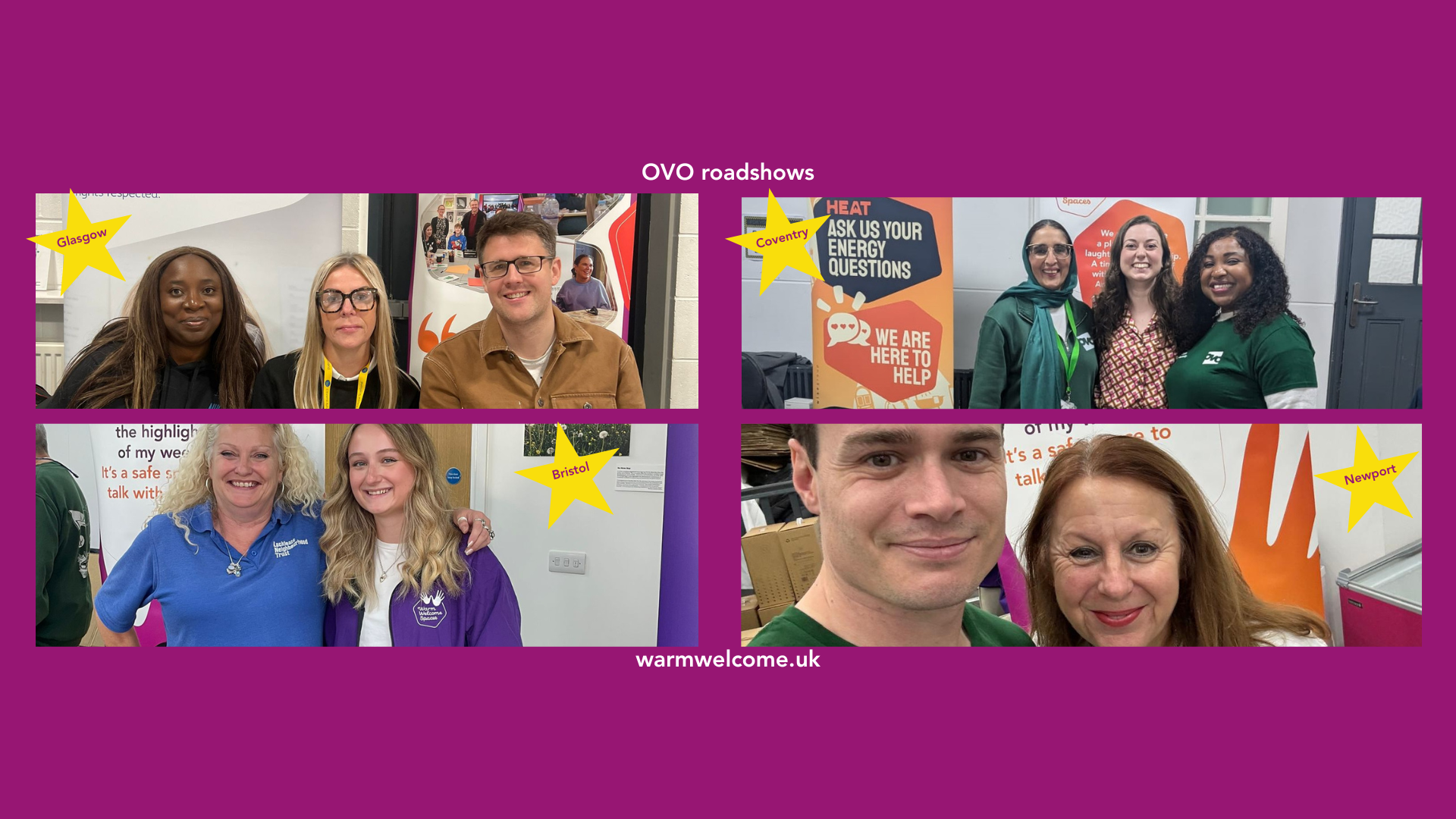.svg)
Last winter, a movement of bottom-up community support emerged in the form of Warm Spaces. These local spaces were responding to the twin energy and cost of living crises that made the cold weather simply unbearable for many.
From the very beginning of the Warm Welcome campaign we saw enormous potential in Warm Spaces to not just meet immediate needs but to become a powerful catalyst for both systemic change and renewed democratic engagement in left behind communities. But we knew this would only be realised if their capacity to listen to their communities and organise together for change was nurtured and supported.
So we were delighted to partner with the Civic Power Fund and five brilliant organisations working on the ground in London, Bristol, Birmingham and North Wales to run local listening campaigns in Warm Spaces and so test the potential for community organising and power building within Warm Welcome. With support from our learning partner Liz Griffin, here are the five key lessons we learned.
1) Community Building is a prerequisite to sustained Community Organising
People do not act in isolation. It is through connection and community that they identify shared issues and build the trust and solidarity to work together to change things. But Community Building takes time, costs money and requires sustained and deliberate cultivation. It will not look like organising and democratic engagement in the early stages, but it is from this deep community that organising flourishes.
2) This is uniquely important for people living in poverty or deprivation
The Warm Welcome pilot showed that people living in poverty or deprivation face multiple challenges in building power and engaging with democracy. Their time and energy is focussed on day to day survival and they are often isolated from community activities due to prohibitive costs. They and their loved ones have also been failed repeatedly by state and other institutions. As a result, they rarely have the time or inclination to jump straight to ‘fixing the system’. It is thus vital that we collectively invest in the places and spaces where people can come together without judgement and build the relationships that precede democratic engagement.
3) Warm Welcome Spaces offer fertile ground for Community Building
Warm Welcome Spaces offered both immediate benefit and immediate agency to communities. Unlike local services, there was no transactional element. As a result, they offered genuine hospitality and dignity and built a sense of community across paid staff, volunteers, and attendees. This was exemplified by the frequency with which attendees transitioned to volunteers.
As Liz beautifully put it, “Warm Welcome Spaces immediately see people’s dignity. The people who turn up to warm welcome spaces are guests and ‘members’. They are not objects of pity but people — like everyone — who are inherently valuable and have worth. In an economic and political context which has left some people feeling like they are undeserving or worthless (the working poor, asylum seekers, for example), this gesture is everything.”
4) The infrastructure around Warm Welcome Spaces is still nascent, but Community Organising requires structured support
Many Warm Spaces don’t brand themselves as such. Some Warm Spaces are connected to others, but many aren’t. Organising in Warm Spaces requires time and skill. People running Warm Spaces are not organisers, and many people coming to the Spaces are looking to escape their problems rather than confront them. As a result, organising worked best in the pilot in places with established organising networks and experienced organisers.
5) With the right support and investment, we can see a clear pathway to turn this Community Building into Community Organising
Leaders and Warm Space volunteers responded well to the light touch training provided. There is clear potential for sustained training around how to have deeper conversations and how to turn these conversations into democratic action.
Warm Spaces contain many potential leaders of lived experience, simply because they are places where people come together organically — and these places are increasingly rare. There is clear potential to help local Community Organisers and Warm Space volunteers identify these leaders, train them, and build connections and cohorts around them.

Next Steps
As we look ahead to the second winter of the Warm Welcome Campaign, we know that the partners and Warm Spaces that took part in the pilot are already ambitious to join local action and take on shared local issues. With long-term support Community Organisers can play a catalytic role in connecting groups and communities and in turning local listening into local campaigns that boost agency and participation.
And in this way we believe that Warm Welcome can become a dynamic part of the much wider movement looking to turn the tide on poverty and inequality in this country.
Want more updates about the Warm Welcome campaign?
Stay up to date with our latest news:




